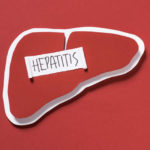Big Pharma and HIV/Hepatitis Co-Infection
The following article is from Datamonitor. They report on industry trends and developments.
There are a couple of points that I find most interesting.
One is the estimate of HIV/HCV coinfection being 30% of HIV patients. This bodes well for having the powerful HIV community rally behind development of more effective HCV treatments.
The other is the fact that this industry “insider” source states that “this will also become and issue in the context of HCV antivirals once developmental HCV polymerase and protease inhibitors reach the market.” Notice, they did not say “if”, they essentially said “when”.
So, there is more assurance that more and better treatments are on the horizon.
Big pharma set to move into HIV/hepatitis co-infection niche
8 Mar 2005, 19:02 GMT – While the European Consensus Conference gained a consensus agreement for the treatment of HIV/HCV coinfection, the definition of best practice for the management of HIV/HBV remains clouded by the lack of data. However, this is certain to change with BMS’ entecavir trial in HIV/HBV co-infected patients. Datamonitor’s Brigitte de Lima reports…
The first European Consensus Conference on the Treatment of Chronic Hepatitis B and C in HIV Co-infected patients, held in Paris in early March 2005, was the first of its kind. The initiative brought together leading hepatitis and HIV specialists who drew up recommendations concerning the management of HIV/hepatitis co-infections. The goals to be achieved with these are, firstly, consistent therapeutic approaches across Europe and, secondly, increased diagnosis and treatment rates.
The delay of the onset of AIDS due to highly active antiretroviral therapy (HAART) has led to a significant increase in the life expectancy of patients infected with the human immunodeficiency virus (HIV). As a consequence, the management of concurrent illnesses, such as hepatitis B (HBV) and C (HCV), has been gaining increasing importance. Clinical experience has shown that concurrent HIV infection accelerates the progression of the underlying liver disease.
Concomitant with the AIDS epidemic, the absolute number of HIV/HBV and HIV/HCV co-infected patients has been rising steadily as a result of the common routes of transmission for these viruses. HIV is predominantly transmitted by sexual contact and intravenous drug use (IVDU). While the former is also the major route of HBV transmission, the latter predominates for HCV. Thus, depending on how HIV is acquired, simultaneous infection with either hepatitis virus is common. It is currently estimated that 10-15% of HIV patients also harbor a chronic HBV (CHB) infection, while the proportion chronically infected with HCV (CHC) might be as high as 30%.
The implications for the pharmaceutical industry are varied. First of all, with the establishment of pan-European guidelines, HIV/HBV and HIV/HCV co-infections can be regarded as new indications in their own, requiring existing and developmental drugs to be clinically tested in the co-infected populations. Key issues associated with clinical trials in co-infected patients are the possibility of pharmacokinetic interactions between antivirals to treat viral hepatitis and components of the HAART regime, and, importantly, the risk of viral resistance to both HIV and the hepatitis virus. Although viral resistance is currently only an issue for HBV therapy, it is anticipated that this will also become an issue in the context of HCV antivirals once developmental HCV polymerase and protease inhibitors reach the market.
Some pharmaceutical companies have already taken a step forward in this respect by trialing their hepatitis drugs in co-infected patients. Roche, for example, has recently received approval for the use of Pegasys (pegylated interferon alfa-2a) and Copegus (ribavirin) for the treatment of HCV in HIV co-infected patients following favorable results for the APRICOT study. This clearly gives it the lead in this patient sub-group, as supporting clinical data represent a significant driver in drug prescription choices.
In the context of HBV co-infection, the pharmaceutical sector has been slower to respond. While this might be due to the lower rate of HBV compared to HCV co-infected patients, 10-15% versus 30%, it is more likely to be a consequence of the very nature of CHB disease progression. While current HCV therapy is finite and can lead to virus eradication, HBV eradication, commonly defined as seroconversion from the presence of HBV surface antigen (HBsAg) to HBsAg loss and anti-HBsAg seroconversion, is rarely achieved with approved treatment options. Thus, it is not currently known whether treatment should be maintained in light of an unsatisfactory virological response.
HIV/HBV co-infection is currently managed using antivirals with dual activity against both viruses, such as Epivir (3TC/lamivudine), approved for both viral diseases – albeit at different doses – and Viread (tenofovir disoproxil), approved for HIV only. However, 3TC is associated with high rates of resistance for both viruses, limiting its usage in this population. In contrast, tenofovir has a favorable resistance profile, but apart from small independent trials, the drug has not officially been tested for either HBV monoinfection or HIV/HBV co-infection.
HIV/HCV and HIV/HBV co-infections clearly represent major clinical unmet needs. The development of new European guidelines, and the growth potential of the field, has set the foundation for more investment from the private sector. Bristol-Myers Squibb has already identified this niche market, with its lead HBV compound entecavir currently undergoing a Phase II clinical trial for HIV/HBV co-infection. Datamonitor expects others to follow this example to achieve greater drug differentiation.








2 Comments
Is it possible to participate in some of these drug trials?
For the first time since my involvement with HCV in 1999, I actually see some hope for improvement in HCV therapies. Progress though is painfully slow. Seems to me that if not for the International medical community we would never be close to where we are now in developing new therapis.